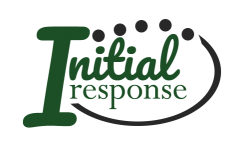Crafting a strong and impactful CV is crucial for showcasing your professional experience and aspirations. An impressive resume not only highlights your qualifications but also maps out the trajectory of your professional journey. By understanding different career paths, you can ensure your CV presents an organized and compelling narrative to potential employers.
Understanding the Elements of a Professional CV
When constructing your CV, it is essential to include several key elements that will resonate with recruiters and hiring managers. These elements provide a comprehensive view of who you are as a professional and where your career aspirations lie. For those looking to get started or refine their existing resume, consider using a free CV template uk.
Objective vs. Summary
Your CV may start with either an objective or a summary, depending on your current situation and preferences. Here’s how they differ:
- Objective: An objective statement clearly outlines your career goals and what you aim to achieve in your next professional step. It is typically used by individuals at the start of their careers or those making a career change.
- Summary: A summary provides a brief overview of your professional experience and key achievements. This is ideal for individuals with substantial experience looking to highlight their career accomplishments.
Professional Experience
The professional experience section of a CV is arguably its most critical component. In this segment, detail your previous job roles, responsibilities, and achievements in reverse chronological order. Emphasize how your background fits into your targeted industry or role.
Exploring Sample Career Paths
Diversifying your understanding of potential career trajectories helps articulate your professional experience effectively. Below we explore various sample career paths, providing practical examples and analysis.
Technology Industry
The field of technology offers numerous opportunities ranging from software development to IT management. Let’s examine a few positions along this path:
- Junior Software Developer: Starting as a junior developer typically involves working under senior developers, contributing to codebases, and learning best practices in coding.
- Software Engineer: This role often entails designing, developing, and maintaining software systems, requiring a deeper understanding of programming languages and problem-solving skills.
- Senior Software Architect: In this advanced position, professionals design system architectures, mentor junior staff, and oversee large-scale projects.
- IT Manager: As an IT manager, handling team leadership, project management, and strategic planning for technological developments within an organization becomes paramount.
Client Solutions
Transitioning to client solutions showcases another fascinating career path characterized by direct interaction with clients and addressing their needs:
- Customer Service Representative: Entry-level roles in customer service focus on resolving client issues, managing inquiries, and ensuring satisfactory outcomes.
- Account Manager: Moving up, account managers build long-term relationships with clients, strategizing ways to meet their needs and support business growth.
- Client Solutions Manager: At a higher rung, this role emphasizes coordinating between technical teams and clients, tailoring solutions to complex problems, and driving successful project outcomes.
Navigating a Career Change
For those contemplating a shift in their professional life, certain strategies can facilitate this transition more smoothly while articulating your passion and relevant experience in your CV.
Highlight Transferable Skills
Identify skills that apply across industries. Communication, project management, and analytical thinking are valuable in virtually any field:
- Communication: Demonstrate proficiency through experiences like report writing, presentations, or teamwork.
- Project Management: Showcase your ability to plan, execute, and manage projects, regardless of the specific content area.
- Analytical Thinking: Emphasize instances where you have critically assessed situations, identified challenges, and provided data-informed decisions.
Leverage Your Network
Networking plays a pivotal role during a career change. Leverage connections within your desired industry for advice, referrals, and insights into new opportunities:
- Attend industry events to meet professionals who can offer guidance.
- Engage on platforms like LinkedIn to reconnect with old colleagues or connect with new contacts relevant to your target field.
- Join professional associations to access additional resources and support throughout your transition.
Showcasing Your Achievements
Achievements give weight to your professional experience and demonstrate tangible contributions you’ve made in past roles. Here’s how to feature them effectively on your CV:
Quantify Achievements
Whenever possible, use data and statistics to showcase your successes:
- Provide concrete figures such as “increased sales by 20%” or “reduced project delivery time by 15%”.
- Detail cost savings or revenue generated through your initiatives (e.g., “saved $50,000 annually through process improvements”).
Award Recognition
If you’ve received awards or formal recognition in your previous jobs, make sure to include these honors:
- Mention accolades such as “Employee of the Month” or “Top Salesperson of the Year”.
- Detail the criteria for receiving the award and how it highlights your strengths.
Pursuing Continuous Education
Continual learning and obtaining additional certifications can significantly enhance your professional credentials:
Formal Education
Include details about relevant degrees, diplomas, and courses completed:
- List your highest degree first, followed by others in reverse chronological order.
- Note any honors or distinctions earned during your studies.
Professional Certifications
Industry-specific credentials can add value to your CV, particularly in fields requiring specialized knowledge:
- Cite certifications gained from recognized institutions or governing bodies pertinent to your career path.
- Detail the acquired skills and competencies associated with each certification.
Aligning Your CV with Career Aspirations
Your CV should reflect your current ambitions and future goals, aligning with your career aspirations:
Targeted Skills
Ensure the listed skills match those required for your targeted role:
- Incorporate keywords from job descriptions related to your desired positions.
- Tailor your skillset presentation to align with the expectations of potential employers.
Personal Projects
Showcase personal projects relevant to your career goals. These can exhibit your passion and initiative:
- Elaborate on independent or freelance projects demonstrating competence and enthusiasm.
- Explain how these projects helped refine skills relevant to your target industry.













Comments